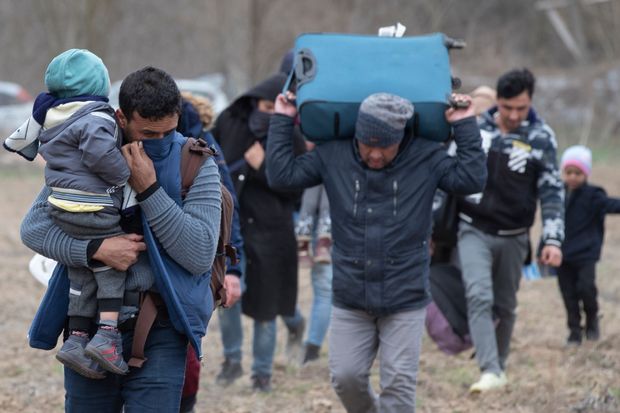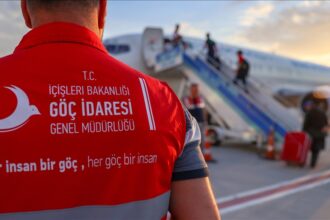1. General Principles of the Humanitarian Residence Permit Turkey
Humanitarian residence permit turkey may be issued without requiring the conditions or general obligations specified for other types of residence permits. This type of permit is granted in cases that do not fall under the conditions listed in the law but are deemed necessary due to their nature. A humanitarian residence permit can only be issued or extended for limited durations as determined by the Ministry.
Humanitarian residence permits may be issued or extended by provincial governorates upon approval from the General Directorate. The term “issued by the governorate” implies that the administration can grant the permit directly without requiring an application from the individual. Since the reasons for such permits are beyond the individual’s control, an application may not even be necessary depending on the circumstances. After discussing these principles, the following are examples of situations where a humanitarian residence permit may be granted.
A. Humanitarian Residence Permit Turkey Based on the Best Interests of the Child
-
A residence permit may be issued when the best interests of the child are at stake.
-
Example: Consider a foreign child, aged 6-7, who has been diagnosed with cancer and cannot receive treatment in their home country. The child was brought to Turkey with the help of a Turkish citizen. The child is unaccompanied, has no family in Turkey, and has cancer. If a health protection measure is requested from the juvenile court for the child and the request is granted, the court may issue a health protection order, allowing the child to receive cancer treatment. The child’s mother, who has decision-making authority over the child and needs to stay in the country for care, may apply for a humanitarian residence permit.
-
Another example: In its decision dated December 29, 2016 (E. 2016/1524, K. 2016/2761), the Istanbul 1st Administrative Court ruled that a humanitarian residence permit should be granted to an Algerian mother, considering the best interests of the child. The case involved an Algerian citizen who had married a Turkish national and had three children. After divorcing in 2005, custody was granted to the Algerian mother. Due to financial difficulties and high residence fees, she could not obtain another type of residence permit. Since her children were in Turkey and she could not return to Algeria, she applied for a humanitarian residence permit. When her request was rejected by the Istanbul Provincial Directorate of Migration Management, she filed a lawsuit. The court ruled that since the children were under 18, deporting the mother would prevent her from fulfilling her custody duties, which would be against the child’s best interests. Thus, the rejection was overturned.
-
B. Humanitarian Permit Turkey for Those Unable to Depart
-
If a foreigner is subject to a deportation order or entry ban but cannot leave Turkey (or if their departure is deemed unreasonable or impossible), a humanitarian residence permit may be granted.
-
Example: The Turkmenistan government requested that its citizens be allowed to stay in Turkey until they obtained new biometric passports due to a policy change. Since the reason was deemed valid, a humanitarian residence permit was granted.
-
C. Residence Permit for Those Who Cannot Be Deported and for International Protection Applicants
-
A humanitarian residence permit may be issued even if no deportation order has been issued against the foreigner.
-
Cases where deportation cannot be carried out are limited under the principle of non-refoulement:
-
Those who face a real risk of execution, torture, inhuman, or degrading treatment in the destination country.
-
Those whose health conditions, age, or pregnancy make travel dangerous.
-
Those undergoing life-saving treatment unavailable in the destination country.
-
Victims of human trafficking receiving support.
-
Victims of psychological, physical, or sexual violence until their treatment is completed.
-
Example: The Istanbul 1st Administrative Court (E. 2015/1968, K. 2016/652, dated March 17, 2016) ruled in favor of an Egyptian national who was ordered deported due to security concerns (coded as G-87 and Ç-114). However, the court found that the authorities failed to prove he was a threat. Additionally, the applicant was a member of an opposition group (Rabia Freedom Movement) and faced execution or degrading treatment if returned to Egypt. Citing non-refoulement, the court canceled the deportation order.
-
-
If a foreigner appeals a deportation order, rejection of international protection, or withdrawal of their application, a humanitarian residence permit may be granted pending the court’s decision.
-
Deportation orders apply to:
-
Those who should be deported under the Turkish Penal Code.
-
Terrorist organization members, leaders, or supporters, or members of organized crime groups.
-
Those who use fake documents for entry, visa, or residence permits.
-
Those who sustain themselves through illegal means.
-
Those who pose a threat to public order, security, or health.
-
Those who overstay their visa or visa exemption by more than 10 days.
-
Those whose residence permits are canceled.
-
Those who overstay their residence permit by more than 10 days without justification.
-
Those who work without a permit.
-
Those who violate entry/exit rules.
-
Those who enter Turkey despite an entry ban.
-
Those whose international protection applications are rejected, withdrawn, or terminated.
-
Those who do not leave within 10 days after their residence permit extension is denied.
-
Those linked to internationally recognized terrorist groups.
-
Exceptions: Even if they apply for international protection, individuals under points 2, 5, or 14 can still be deported.
-
-
International protection applications are rejected if:
-
The applicant reapplies without new grounds.
-
The applicant withdraws consent and reapplies without justification.
-
The applicant comes from a “safe third country” or “first country of asylum”.
-
If the applicant appeals the rejection, they may receive a humanitarian residence permit pending the outcome.
-
-
An application is considered withdrawn if the applicant:
-
Submits a written withdrawal.
-
Misses three consecutive interviews without excuse.
-
Escapes from administrative detention.
-
Fails to report three times without justification.
-
Does not reside at the assigned address or leaves without permission.
-
Refuses to provide biometric data.
-
Fails to comply with registration/interview obligations.
-
If the applicant challenges the withdrawal decision, they may receive a humanitarian residence permit.
-
-
A humanitarian residence permit may be granted during repatriation procedures to a safe third country or first country of asylum.
D. Humanitarian Residence for Urgent and Extraordinary Reasons
-
If a foreigner’s entry or stay is necessary for urgent reasons, national interest, public order, or security, but they cannot obtain another type of residence permit, a humanitarian residence permit may be granted.
-
Extraordinary circumstances may also warrant this permit.
1. Residence Permit for Victims of Human Trafficking
-
Granted to victims (or potential victims) of human trafficking to help them recover and cooperate with authorities.
-
The permit is valid for 30 days, and the holder must register their address within 20 working days.
-
Issued free of charge by governorates.
-
No requirement for a valid passport, visa, financial means, health insurance, or absence of a deportation order.











One Comment